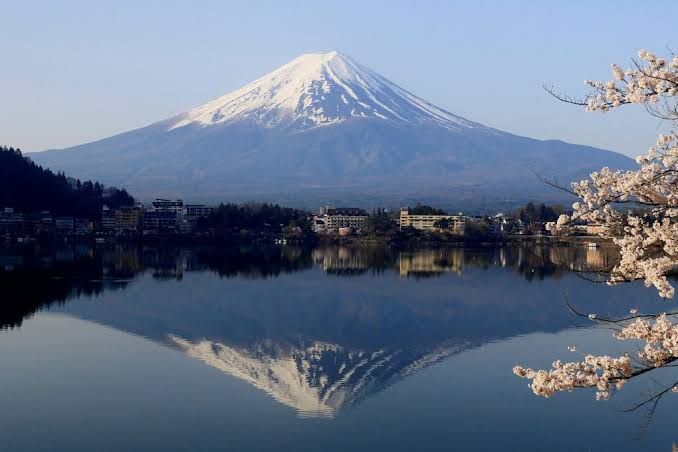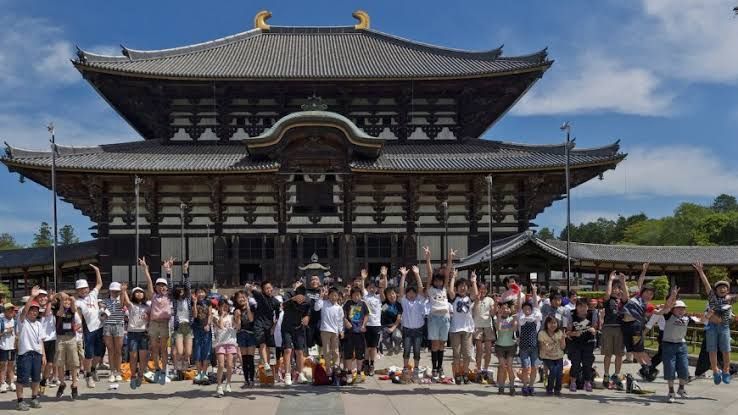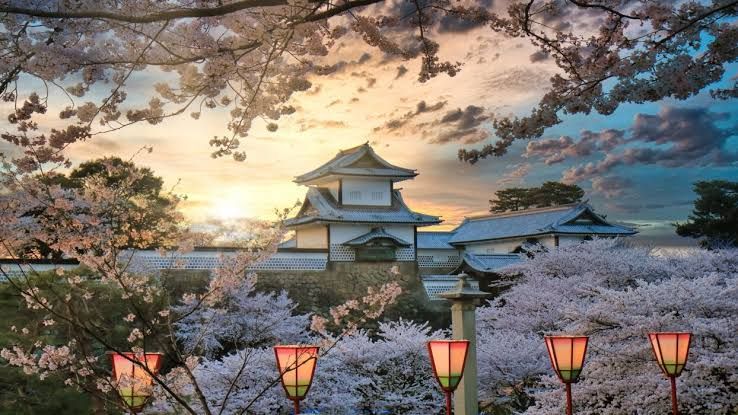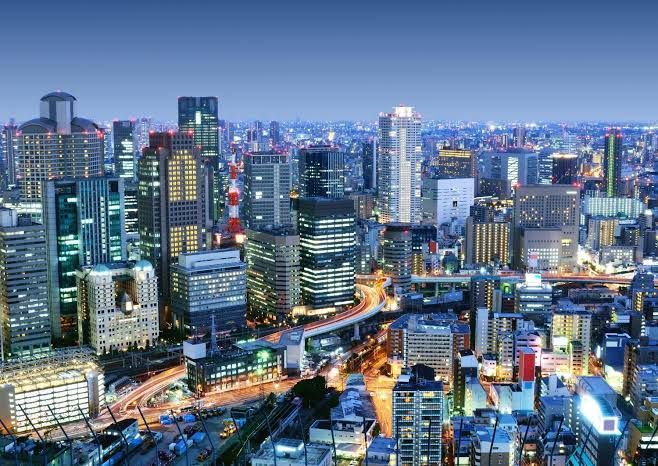Japan is an interesting destination where visitors may really engage with a culture different from their own. There are both traditional rituals and modern lifestyles that complement each other exactly. See the top 10 destinations in Japan to get a sense of its heart and soul. These locations span calm temples to crowded metropolitan regions. The serene beauty of bamboo woods, the spiritual depth of holy islands, and the rustic appeal of mountain communities with thatched-roof cottages are among the sites full of their own particular allure. Foodies will find fresh cooked sushi, sizzling ramen, and delicate wagashi sweets appealing.The tranquil gardens and the hundreds of years old castles will astound history buffs. One may find all around Japanese nature at its most gorgeous, with lavender fields and snow-capped mountains. Both adventurers and environmentalists will find this to be a fantastic location. Participating in a traditional tea ceremony or stroll through a crowded market full of handcrafted items is a great approach to relate with Japan’s past. These locations are so rich in cultural immersion, historical treasures, and breathtaking beauty that you are sure to enjoy an experience not only deep but also unforgettable. If one wants to truly grasp the rhythm of Japan, one must visit these sites.
Top Ten Places To Visit In Japan For Authentic Experience
10. Mount Fuji: Japan’s Sacred Peak

Mount Fuji, Japan’s tallest mountain at 3,776 meters, stands as a cultural and natural icon, revered in art, literature, and Shinto beliefs. Climbing this active volcano during the July to September season, particularly via the Yoshida Trail, offers breathtaking sunrise views, with huts providing rest and snacks like onigiri. The Fuji Five Lakes area, including Lake Kawaguchi, delivers stunning vistas and activities like boating or visiting the Chureito Pagoda for postcard-worthy shots.Local ryokan offer kaiseki meals and onsen baths, deepening the authentic Japanese experience. Festivals like the Fuji Yoshida Fire Festival add spiritual vibrancy, while the mountain’s UNESCO status underscores its global significance. Its serene beauty and sacred history make it a must-visit for those seeking Japan’s natural and spiritual essence, blending adventure with cultural depth. Whether hiking or admiring from afar, Mount Fuji embodies Japan’s timeless allure, drawing travelers to its majestic slopes and tranquil surroundings.
9. Tokyo: Where Tradition Meets Tomorrow

Tokyo, Japan’s pulsating capital, seamlessly blends ultramodern skyscrapers with ancient traditions, offering an authentic Japanese experience. Senso-ji Temple in Asakusa, Tokyo’s oldest, captivates with its Kaminarimon gate and Nakamise-dori street, bustling with stalls selling traditional sweets like ningyo-yaki. Meiji Jingu Shrine, nestled in a forested oasis, provides a spiritual retreat with Shinto rituals, while Shibuya Crossing and the Hachiko Statue pulse with urban energy.Shinjuku Gyoen National Garden offers seasonal beauty, from cherry blossoms to autumn leaves, perfect for a tranquil stroll. Neighborhoods like Yanaka preserve old-world charm with retro shops and small temples. Tokyo’s street food, from yakitori in alleyways to Michelin-starred ramen, showcases culinary diversity. Cultural experiences like sumo tournaments or tea ceremonies at local teahouses enrich the visit. Tokyo’s ability to balance futuristic innovation with historical reverence makes it a dynamic destination for travelers seeking Japan’s multifaceted cultural heritage.
8. Nara: Echoes of Ancient Japan

Nara, Japan’s first permanent capital, is a treasure trove of historical and cultural gems, offering an authentic glimpse into the nation’s past. Nara Park, sprawling and serene, is home to free-roaming deer, considered sacred messengers, delighting visitors with their gentle presence. Todaiji Temple, a UNESCO site, houses the Great Buddha, a colossal bronze statue, within one of the world’s largest wooden structures.Kasuga Taisha Shrine, with its vibrant vermilion pillars and stone lanterns, creates a mystical atmosphere, especially during lantern-lighting festivals. Kofuku-ji Temple’s five-story pagoda and Isuien Garden’s meticulously landscaped grounds provide tranquil settings for reflection. Nara’s compact size makes it ideal for exploring on foot, with local eateries serving kakinoha sushi, wrapped in persimmon leaves. The city’s well-preserved heritage, dating back to the 8th century, offers a deep dive into Japan’s spiritual and architectural roots, making it essential for those craving an authentic historical experience.
7. Hokkaido: Nature’s Masterpiece

Hokkaido, Japan’s northernmost island, is a haven of unspoiled landscapes and seasonal wonders, perfect for an authentic Japanese adventure. Furano’s lavender fields bloom vibrantly in summer, with Farm Tomita offering stunning views and lavender-infused treats. Biei’s rolling hills and Blue Pond captivate with their surreal beauty, while Niseko transforms into a winter paradise with world-class skiing on powdery snow.Hakodate’s morning market serves fresh uni and kaisendon, reflecting Hokkaido’s seafood-rich cuisine. Matsumae Castle, a rare northern fortress, evokes samurai history, and Lake Toya’s caldera lake pairs hot springs with scenic cruises. Shiretoko National Park, a UNESCO site, teems with wildlife like brown bears and whales, ideal for hiking or boat tours. Onsen towns like Noboribetsu offer relaxing soaks in mineral-rich waters. Hokkaido’s blend of rural charm, natural splendor, and cultural depth, from Ainu heritage to seasonal festivals, makes it a year-round destination for immersive Japanese experiences.
6. Miyajima: Island of Serenity

Miyajima, a sacred island near Hiroshima, enchants with its spiritual and natural allure, offering an authentic Japanese retreat. Itsukushima Shrine, a UNESCO site, is renowned for its floating torii gate, which appears to hover over the sea at high tide, creating a mesmerizing vista. Daisho-in Temple, at the base of Mount Misen, features intricate statues and prayer halls, while hiking or taking the ropeway to Mount Misen’s summit rewards with panoramic views and encounters with wild deer.Traditional ryokan provide kaiseki dining and onsen baths, immersing visitors in Japanese hospitality. Local specialties like grilled oysters and momiji manju (maple-shaped cakes) delight food lovers. Miyajima’s car-free streets and lantern-lit evenings enhance its tranquil charm, while festivals like the Toka-sai dance showcase Shinto traditions. This island’s blend of spirituality, nature, and cultural heritage makes it a profound stop for those seeking Japan’s soulful essence.
5. Kanazawa: Feudal Elegance

Kanazawa, often called the “Kyoto of the North,” preserves Japan’s feudal past with an authentic cultural charm. The Nagamachi samurai district, with its cobblestone streets and restored residences like the Nomura House, offers a glimpse into warrior life. Higashi Chaya-machi, a historic teahouse district, invites visitors to enjoy matcha in gold-leaf-decorated settings or witness geisha performances.Kenrokuen Garden, one of Japan’s three finest, dazzles with seasonal beauty, from plum blossoms to autumn maples. Omicho Market bustles with fresh seafood, including kaisen donburi, reflecting Kanazawa’s coastal heritage. The 21st Century Museum of Contemporary Art blends tradition with modernity, while gold leaf crafts, a local specialty, add artisanal allure. Kanazawa’s compact layout makes it easy to explore, with traditional kaiseki restaurants and sake breweries enhancing the experience. This city’s rich history and cultural vibrancy make it a hidden gem for an authentic Japanese journey.
4. Osaka: Japan’s Culinary Soul

Osaka, known as the “Kitchen of Japan,” pulses with energy and flavor, offering an authentic taste of Japanese urban life. Dotonbori’s canal-side street, lit by iconic signs like the Glico running man, is a haven for street food, from crispy takoyaki to savory okonomiyaki. Kuromon Market, a foodie paradise, offers fresh sashimi and grilled scallops, while Shinsaibashi-suji Shopping Street blends shopping with local eats.Minami (Namba) buzzes with nightlife, from izakayas to comedy shows, reflecting Osaka’s lively spirit. Sumiyoshi Taisha Shrine, with its arched red bridge, provides a serene contrast, showcasing Shinto traditions. Osaka Castle, surrounded by cherry blossoms in spring, adds historical depth. The city’s blend of culinary excellence, vibrant street culture, and historical sites creates a dynamic experience, perfect for travelers seeking Japan’s bold, flavorful authenticity in a bustling urban setting.
3. Shirakawa-go: Rural Time Capsule

Shirakawa-go, tucked in Gifu’s mountains, is a UNESCO World Heritage Site celebrated for its gassho-zukuri farmhouses, whose steep thatched roofs resemble praying hands. Ogimachi, the largest village, offers open-air museums like the Gassho-zukuri Minkaen, showcasing traditional lifestyles. Suganuma and Ainokura in nearby Gokayama provide quieter, less touristy experiences, with farmhouses doubling as minshuku for overnight stays featuring homemade meals.The region’s seasonal beauty, from cherry blossoms to snow-covered roofs, creates a postcard-perfect setting. Local crafts, like soba-making workshops, and festivals, such as the Doburoku sake festival, immerse visitors in rural traditions. Hiking trails offer stunning views of the Hida Mountains, while hot springs nearby provide relaxation. Shirakawa-go’s preserved architecture and community-driven hospitality deliver an authentic glimpse into Japan’s rural heritage, making it ideal for those craving a peaceful, cultural escape.
2. Hiroshima: Resilience and Reflection

Hiroshima, a city reborn from tragedy, offers a profound authentic experience centered on peace and history. The Hiroshima Peace Memorial Park, with its cenotaph and eternal flame, honors atomic bomb victims, while the Peace Memorial Museum provides moving exhibits with survivor stories. The Atomic Bomb Dome, a UNESCO site, stands as a preserved ruin, symbolizing resilience.The Children’s Peace Monument, adorned with colorful origami cranes, inspires hope and global unity. Beyond its historical significance, Hiroshima Castle, reconstructed with samurai-era exhibits, and Shukkeien Garden, with its tea houses and koi ponds, offer cultural tranquility. Local cuisine, like Hiroshima-style okonomiyaki, layered with noodles, adds a savory touch. The city’s blend of solemn reflection, vibrant recovery, and traditional elements makes it a deeply meaningful destination for those seeking Japan’s historical and human spirit.
1. Kyoto: Japan’s Cultural Core

Kyoto, the heart of traditional Japan, captivates with its rich history and living culture, offering an unparalleled authentic experience. The Arashiyama Bamboo Grove enchants with its towering green stalks, creating a serene escape. Fushimi Inari Taisha Shrine, with its thousands of vermilion torii gates winding up Mount Inari, invites spiritual exploration. Kinkakuji Temple, the Golden Pavilion, shimmers with gold leaf, reflecting in its pond, while Kiyomizu-dera Temple’s wooden stage offers sweeping city views, both UNESCO sites. Gion, the geisha district, buzzes with teahouses where visitors may spot maiko, and Nishiki Market tempts with Kyoto specialties like yuba and pickled vegetables. Seasonal festivals, such as Gion Matsuri, showcase vibrant floats and traditional music. Kyoto’s temples, gardens, and kaiseki dining embody Japan’s aesthetic and spiritual depth, making it the ultimate destination for cultural immersion and an authentic journey through Japan’s soul.






